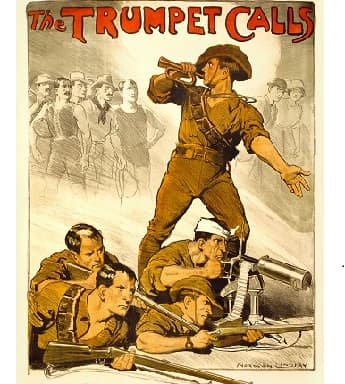Introduction - WW1 Nationalism
Nationalism is defined as a feeling of loyalty and pride in one's nation or people and is sometimes accompanied by feelings of superiority over other nations. Nationalism was abundant in Europe in the early 1900s and was one of the major causes of World War One. During this time strong feelings of nationalism existed among the great military powers of Europe and among the Slav people who hoped to unite all the Slav people of Europe into a unified state. Below you will find a list of interesting facts about why nationalism rose in Europe prior to WW1 and how it was a major cause of the Great War. This information is written for both kids and adults.Click here for a great selection of Amazon.com books about the causes of World War One.
World War One Nationalism - The Slav People
- Before WW1 the Serbians along with their leader Nicholas Pashich hated Austria-Hungary. The Serbians supported the rise of Pan-Slavic nationalism and the goal of a larger Slavic state which would include Serbia and the Slav people of Austria-Hungary. Austria-Hungary regarded Pan-Slavic nationalism as a threat to their country.
- The assassination of Archduke Franz Ferdinand, which started WW1, was carried out by a group of Slav assassins. These assassins hoped to unite the Slav population of Austria-Hungary with the Slav state of Serbia to create a larger Serbian state. They hoped the assassination would ignite nationalistic feeling among the Slav people of Austria-Hungary and cause a revolt.
- The majority of Russian people in the early 1900s were Slavs. They had sympathy for the Slav people under the control of Austria-Hungary. These nationalistic sentiments mixed with their desire to expand into the Balkans caused tension between Russia and Austria-Hungary.
World War One Nationalism - The Major European Military Powers
- The assassination of Archduke Franz Ferdinand of Austria on June 28th of 1914 is the event that sparked WW1. After the assassination many factors among the major European military powers at that time led to the war; including a series of alliances, militarism, and nationalism. Feelings of nationalism led to countries being less willing to work differences out peacefully and their wanting to prove their superiority.
- Nationalism led to over-confidence among the major military powers of Europe that were involved in World War One. Many of these countries such as Germany, Austria- Hungary, and Great Britain believed they would win the war quickly and with few casualties. Instead the bloody war lasted over four years and resulted in millions of deaths.
- The Franco-Prussian War, which ended in 1871, resulted in a united Germany which quickly became the strongest military power in Europe with sights on expanding its influence throughout the world. With this great power came extreme nationalism with many German people feeling they were superior to the people of other European countries.
- French nationalism came into play as cause of World War One. France had suffered an embarrassing defeat against Prussia (Germany) in the Franco-Prussian War and was anxious for revenge along with the hope of regaining the Alsace and Lorraine territory lost to Germany in that war.
